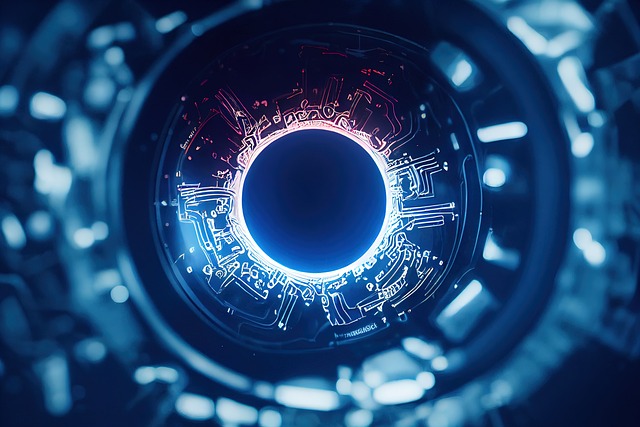Section 1: Introduction to AI and its Role in Modern Technology
Artificial Intelligence (AI) has been a buzzword for quite some time now, and with good reason. This rapidly advancing technology has the potential to revolutionize the way we live, work, and interact with the world around us. From self-driving cars to virtual personal assistants, AI is already making its mark in our daily lives. But what exactly is AI and how is it being integrated into modern technology? In this article, we will explore the limitless potential of AI and its impact on various industries.
AI refers to the simulation of human intelligence in machines that are programmed to think and act like humans. It involves the development of algorithms and systems that can analyze data, learn from it, and make decisions based on that information. This technology is constantly evolving and has the ability to improve and adapt over time, making it a powerful tool in modern technology.
Section 2: AI in Healthcare
One of the most promising areas where AI is making a significant impact is in the healthcare industry. With the vast amount of data generated in the medical field, AI has the potential to analyze and interpret this data at a much faster and more accurate rate than humans. This can help doctors and medical professionals make more informed decisions, leading to better patient outcomes.
One application of AI in healthcare is in medical imaging. AI-powered systems can analyze medical images, such as X-rays and MRIs, to detect abnormalities and assist in diagnosis. This not only speeds up the process but also reduces the chances of human error. In fact, a recent study found that AI was able to detect breast cancer in mammograms with a 99% accuracy rate, compared to 96% for human doctors.
In addition to diagnosis, AI is also being used in drug discovery and development. With the help of machine learning algorithms, researchers can analyze vast amounts of data to identify potential drug candidates and predict their effectiveness. This can significantly reduce the time and cost involved in bringing new drugs to market, ultimately benefiting patients.
Section 3: AI in Business
Another area where AI is making a significant impact is in the business world. From customer service to supply chain management, AI is transforming the way businesses operate. One of the most widely used applications of AI in business is chatbots. These virtual assistants are powered by AI and can interact with customers in a human-like manner, providing them with quick and efficient support. This not only improves the customer experience but also reduces the workload of human customer service representatives.
AI is also being used in fraud detection and prevention. With the rise of online transactions, businesses are facing an increased risk of fraud. AI-powered systems can analyze patterns and detect anomalies in data, helping to identify and prevent fraudulent activities. This not only saves businesses from financial losses but also protects their reputation.
Moreover, AI is being used in supply chain management to optimize processes and reduce costs. With the ability to analyze vast amounts of data, AI can identify inefficiencies in the supply chain and suggest improvements. This can lead to faster and more accurate decision-making, ultimately improving the overall efficiency of the supply chain.
Section 4: AI in Education
The potential of AI in education is immense. With the help of AI-powered systems, personalized learning experiences can be created for students. These systems can analyze students’ strengths and weaknesses and provide them with tailored lessons and assignments. This not only improves the learning experience for students but also reduces the workload for teachers.
Moreover, AI can also assist in grading and assessment. With the ability to analyze and process large amounts of data, AI can grade assignments and exams more efficiently and accurately than humans. This not only saves time for teachers but also provides students with timely feedback on their performance.
Another application of AI in education is in the development of intelligent tutoring systems. These systems use AI to adapt to the individual needs of students, providing them with personalized learning experiences. This can help students learn at their own pace and in a way that suits their learning style, ultimately improving their academic performance.
Section 5: Ethical Considerations and Future Possibilities
As with any technology, there are ethical considerations that need to be addressed when it comes to AI. One of the main concerns is the potential loss of jobs due to automation. However, it is important to note that AI is not meant to replace humans, but rather to assist and enhance their capabilities. It is also important for companies and governments to invest in retraining programs to ensure that workers are equipped with the skills needed to work alongside AI.
Looking to the future, the potential of AI is limitless. With ongoing research and development, we can expect to see even more advanced applications of AI in various industries. From personalized medicine to smart cities, AI has the potential to transform the way we live and work. It is crucial for us to continue to explore the possibilities of AI while also addressing any ethical concerns that may arise.
In conclusion, AI has the potential to revolutionize modern technology in various industries. From healthcare to education, this rapidly advancing technology is already making a significant impact and has the potential to bring about even more advancements in the future. It is important for us to continue to embrace and harness the power of AI while also being mindful of its ethical implications. The possibilities are limitless, and it is up to us to use AI for the betterment of society.











